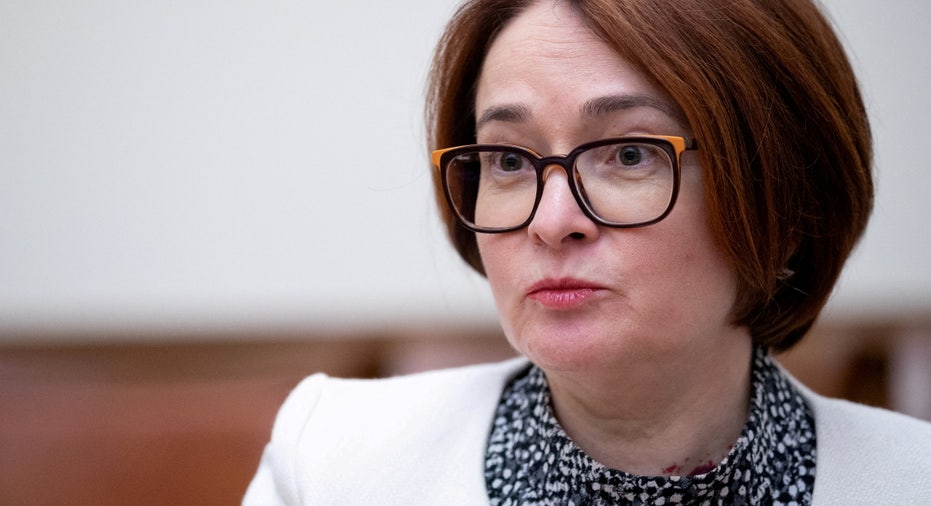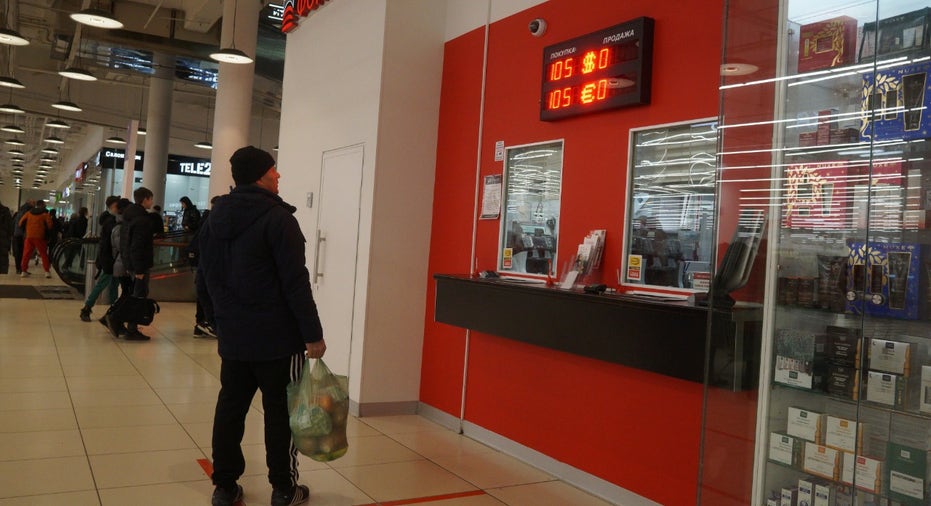Russia to open stock market this week: Impact will be 'internal,' not global
Russia paid $117 million against its debt to avoid default
Bipartisan Senate delegation holds press conference in Poland
Bipartisan Senate delegation holds press conference in Poland.
The reopening of the Russian stock market this week will likely not trigger widespread turmoil, according to an economic expert.
"In my view, many movers and shakers in the market have already factored in these parameters over the past week to manage their exposure to the Russian market, but markets around the world, particularly Europe, Asia and the U.S., will undergo an adjustment period," Anthony Kim, a research fellow in economic freedom at the Heritage Foundation, told FOX Business.
RUSSIA ORDERS CADETS INTO UKRAINE, SENDS MORE MERCENARIES AFTER ZELENSKYY: LIVE UPDATES
Russia kept its stock market closed for three weeks as crippling financial sanctions and a significantly weaker ruble (RUB) led to fears of a massive sell-off and a possible economic death spiral.
Russia also faced the danger of sovereign default, but avoided that particular hurdle with a debt payment of roughly $117 million. Credit rating agency Moody's earlier this month put Russia on the second-lowest rung on the credit ladder, just above default.
Elvira Nabiullina, governor of Russia's Central Bank, speaks during an interview in Moscow, June 27, 2019. | Reuters
Kim explained that the payment generated space for a "soft landing," which helped to soothe "some fears," but that the Russian economy will feel the impact far more than the rest of the world.
"There will be some immediate negative ripple effects, but markets such as ours and other sizable ones in Europe and Asia will make relatively smooth transitions," Kim said.
CHINESE OFFICIAL CALLS SANCTIONS ON RUSSIA INCREASINGLY ‘OUTRAGEOUS’
"The Russian economy will have more of the intended impact of all the sanctions we have put in place," he added. "The Russian government's capacity to pay its next sets of debt payments will be shrunk … there is that risk of sovereign debt defaults for sure, but given the degree of global linkage of the Russian financial sector/system is not as deep, broad and direct as other countries' sectors, the pain will be more internal as time goes by."
The opening of the market is sure to create some level of sell-offs over the next week, and Russia will continue to seek interventions as it remains cut off from the West after the U.S., Europe and Japan removed Russia’s access to the SWIFT global economic system.
EU AND UK HIT RUSSIA WITH WIDER SANCTIONS THAT TARGET LUXURY
The Moscow Times reported Friday that Russia’s Central Bank will buy government bonds when trading resumes, but it did not reveal how much it will spend to "limit the risks to financial stability."
"We are now ready to gradually resume trading on the Moscow Exchange. On Monday, trading will open for government bonds," Gov. Elvira Nabiullina announced. "In order to neutralize excessive volatility and provide balanced liquidity, the Central Bank will buy government bonds."
CHINESE STOCKS PLUNGE ON COVID-19 FEARS, CONCERNS OVER BEIJING AND MOSCOW'S RELATIONSHIP
Economics experts have highlighted the significant impact freezing the central bank’s assets have had on Russia’s ability to fight sanctions.
Economics professor Brian Brenberg earlier this month told "Fox & Friends First" that the asset freeze would prove "the biggest shock" to Russia’s economy since "Putin is counting on those reserves."
GET FOX BUSINESS ON THE GO BY CLICKING HERE
"When the world turned against him, that’s how he was going to keep financing things," Brenberg said. "The world has said you’re not going to get that money, so Putin is struggling on that front."
"You can’t fund things, you can’t get money," he said. "It’s hard to run a war when you can’t get money."
























